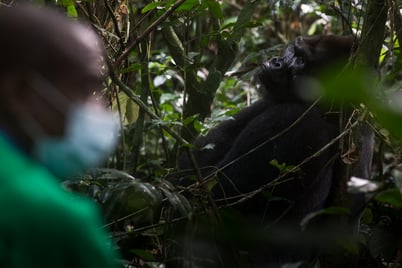by Lilian Gikandi
Media Officer
A year after the COVID-19 pandemic has radically altered peoples’ lives, societies and economies, post-COVID economic stimulus packages and policies - analyzed in a special edition of PARKS (the journal of the IUCN World Commission on Protected Areas) - continue to undermine rather than support nature, one of our strongest and best hopes against future pandemics as well as current planetary crises such as climate change.
While the effects of the pandemic have been felt globally in all sectors, newly published research papers show the deep impacts on protected and conserved areas that are often home to irreplaceable and threatened biodiversity and contribute to the livelihoods and well-being of local communities and society at large.
More than half of Africa's and a quarter of Asia's protected areas have been forced to halt or reduce conservation actions such as anti-poaching patrols, with one in five park rangers losing their jobs.
As most parts of the world have gone into lockdown over the past year, the global tourism industry has taken a huge hit, leaving countries whose economies rely heavily on revenue from tourism reeling. Brazil is projected to suffer a loss of 1.6 billion dollars in sales for businesses working directly and indirectly with tourism around protected areas while in Namibia, communal conservancies could lose 10 million dollars in direct tourism revenues according to initial estimates.
Shocking as these figures are, the research also reveals that at least 22 countries have proposed or enacted rollbacks to regulations or cuts to conservation budgets following COVID-19, in a move that ironically undermines what is a safety net for many of the affected communities and potentially one of our strongest allies against future pandemics: nature.
This needs to change.
Later this year, world leaders will meet in Kunming, China for the UN biodiversity talks to agree on a global plan to protect and restore nature. At WWF, we are working hard to urge them to draw lessons from the science and experiences during this pandemic, and take into account that the risks of neglecting nature span far and wide and across generations, some of which are irreversible. A valuable lesson that we also hope will influence the talks is that the cost of preventing pandemics is significantly lesser than that of eradicating them.
The Park journal includes essays written by around 150 authors, including WWF experts. Read the articles here.



